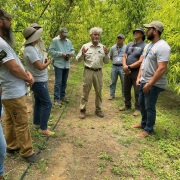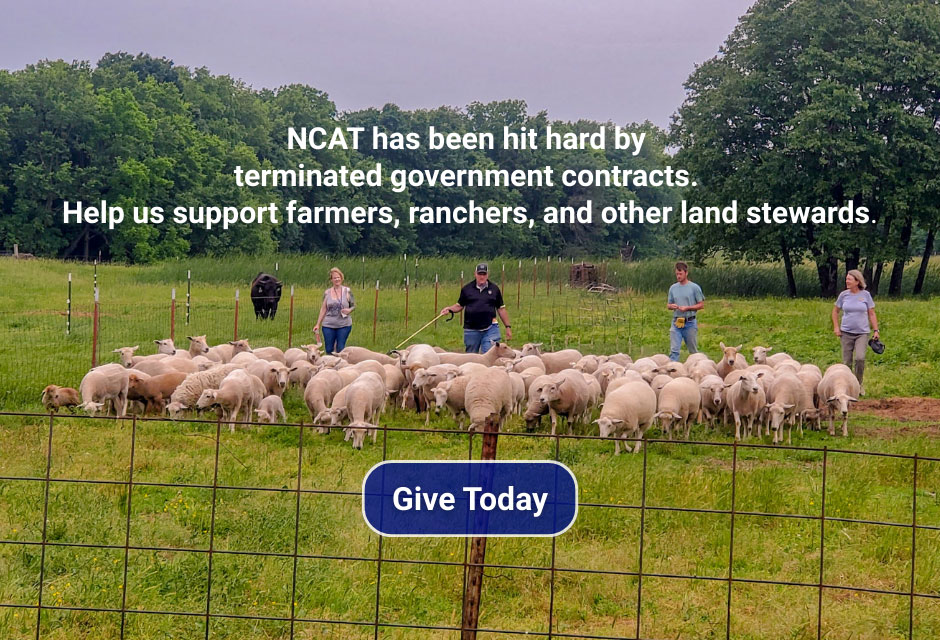NCAT Joins Forces with MSU, UC-Davis, to Lower Risks of Climate Disruption
A new USDA grant will fund the use of crop-insurance data to improve education and extension efforts that help farmers and ranchers assess the ways extreme weather and climate disruption have caused production losses and to project future losses.
The National Center for Appropriate Technology (NCAT) with Montana State University (MSU) and the University of California, Davis (UC-Davis) have been awarded the five-year $1.5 million grant to collaborate with the USDA Southwest and Northern Plains Climate Hubs.
In 2020, the farmers and ranchers in the states representing the Southwest and Northern Plains Climate Hubs suffered insured crop losses of $2.6 billion. The cost that these farmers and ranchers paid for this coverage was $1.8 billion (USDA RMA, 2021). While most of the insured causes of loss in these two regions can be explained by extreme weather, the long-term loss trends continue to increase because of a changing climate.
“This project will utilize a diverse team, including climate hub personnel, extension faculty, agricultural economists, graduate students, and two climate hub fellows to develop and implement improved extension materials for communicating these growing risks associated with extreme weather and climate change,” said Dr. Eric Belasco, Professor of Agricultural Economics at Montana State University and Co-project Director.
This unique effort is part of a new national collaboration with the USDA Climate Hubs. This regional partnership covering two large portions of the U.S. further extends the outreach efforts the Climate Hubs to reach organizations such as the Cooperative Extension Service that need to address extreme weather and climate challenges.
“We at the Southwest Climate Hub have built producer-friendly tools such as the AgRisk Viewer that can help assess weather and climate risks, and this project will help expand and improve the use of this and other tools that serve the farmers and ranchers of the Southwest,” added Dr. Emile Elias, Director of the USDA Southwest Climate Hub.
Understanding the type of climate-risk assessment information that farmers and ranchers in these regions need is a key part of this work.
“We will begin our efforts by hosting a number of focus group sessions that target the broad range of farmers and ranchers, including socially disadvantaged and minority producers and the educational institutions that serve them,” said NCAT Agricultural and Natural Resource Economist Jeff Schahczenski. “It is critical to listen to the needs of farmers and ranchers on how best to meet the challenges of future extreme weather and climate risks.”
MSU, NCAT, and UC-Davis have collaborated on several efforts to better understand the complexity of federal crop-insurance products and why these products aren’t widely used by farmers and ranchers across the country.
“For example, the expanding use of a unique kind of insurance called the Pasture, Rangeland and Forage Rainfall Index (PRF) has been an increasingly important product for livestock producers,” said Dr. Tina Saitone, Associate Cooperative Extensions Specialist, with UC-Davis and rangeland systems expert. “This ‘index’ insurance insures against forage losses based on a complicated formula related to independent rainfall-index measurements, and it is not simple to understand how best to optimize its use in livestock-production risks.”
In addition to assisting producers to better understand the trends in weather and climate-related losses, crop-insurance loss data will also be used to help assess what changes in production practices might better mitigate future losses.
“Our overarching approach and philosophy is that there is no silver bullet to managing risk in production systems, especially risks associated with climate variability,” Belasco said. “Instead, we take a risk management portfolio approach, with the goal of providing clear and detailed information for farmers, ranchers, and professionals so they can better address the regional risks that they currently face and are predicted to face in the future.”
-30-
THE NATIONAL CENTER FOR APPROPRIATE TECHNOLOGY (NCAT) has been helping people build resilient communities through local and sustainable solutions that reduce poverty, strengthen self-reliance, and protect natural resources since 1976. Headquartered in Butte, Montana, NCAT has field offices in Arkansas, California, Colorado, Idaho, Kentucky, Mississippi, Montana, New Hampshire, Pennsylvania, and Texas.
USDA’s Climate Hubs are a unique collaboration across the department’s agencies. They are led and hosted by the Agricultural Research Service and Forest Service located at ten regional locations, with contributions from many agencies including the Natural Resources Conservation Service, Farm Service Agency, Animal and Plant Health Inspection Service, and the Risk Management Agency. The Climate Hubs link USDA research and program agencies in their regional delivery of timely and authoritative tools and information to agricultural producers and professionals.

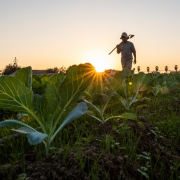 USDA NRCS
USDA NRCS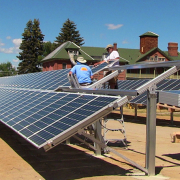

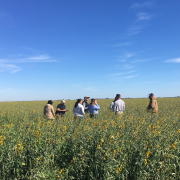

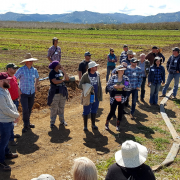
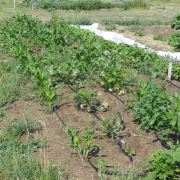
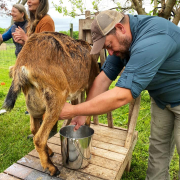 Photo courtesy Scott McClenahan
Photo courtesy Scott McClenahan